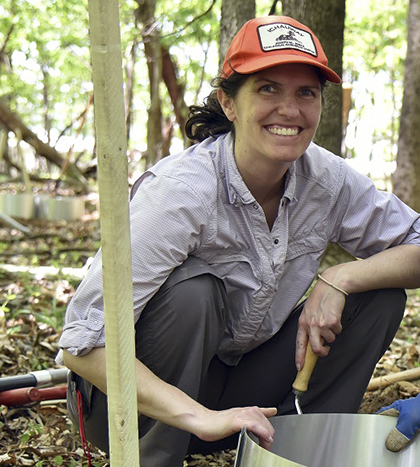Our People

Elizabeth Gleim – Alumni Spotlight
Where are you now and what are you doing?
What is one way your work is having a positive impact on natural resources and conservation?
My work has a positive impact on natural resources and conservation in a few ways. One is that I have the opportunity to educate and mentor the next generation of wildlife biologists, research scientists, and conservationists. Hollins has a really robust environmental studies program and a sizable proportion of our biology majors pursue careers in some area of field biology. One of the things I love most about teaching at a small school is the opportunity to genuinely get to know my students and closely mentor them towards their career and life goals. It’s also been incredibly rewarding getting students out in the field who haven’t necessarily had those experiences before and/or giving students a better understanding and appreciation for the complex issues facing our natural resources.
The research I do also benefits natural resources and conservation. On the most basic level, it provides a better understanding of the impacts of wildlife and land management practices on disease dynamics and vice versa. In particular, a lot of my research has centered around the impacts of prescribed burning on tick-borne disease risk. It’s been especially fascinating moving a little further north here in Virginia where Lyme disease is common and prescribed fire isn’t as commonly used / used on the scale that it is in the Southeast. I’ve received a lot of interest and given a lot of talks to both local land managers and land managers in the northeastern U.S. who have been particularly interested in learning more about using prescribed fire as a tool for controlling tick populations.